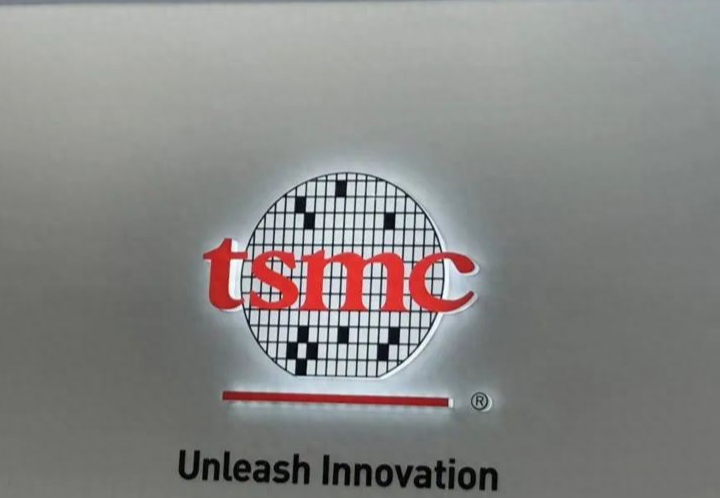New Heights: TSMC Revenue Soars 34%
Advertisements
In a stunning revelation of its financial prowess, TSMC (Taiwan Semiconductor Manufacturing Company) reported a revenue of 2.89 trillion New Taiwan Dollars (approximately $93.8 billion) for 2024, showcasing a remarkable year-over-year increase of 33.9%. This information was unveiled on January 10 during TSMC's monthly revenue report for December 2024.
The data showed that TSMC's revenue for December alone reached approximately 278.16 billion New Taiwan Dollars ($9.1 billion), marking a 0.8% increase from the previous month and a striking climb of 57.8% compared to the same month the previous year. Such robust figures underline TSMC's pivotal role in the global semiconductor industry, as it navigates the constantly evolving technological landscape.
Analysts estimated that TSMC's overall revenue for the fourth quarter of 2024 reached about 868.42 billion New Taiwan Dollars (around $26.64 billion), aligning with TSMC's earlier forecast of Q4 revenues between $26 billion and $26.9 billion made during their October earnings call.
TSMC has solidified its status as a cornerstone of technological advancement, particularly in the production of AI computing chips for market leaders such as NVIDIA, Broadcom, AMD, Amazon, and Google. This collaboration extends to the use of TSMC's cutting-edge chip packaging technology that integrates AI processors with high-bandwidth memory (HBM) chips, resulting in significant performance enhancements.

On January 16, TSMC is set to hold its Q4 earnings conference for 2024. Analysts have pointed to four main areas of focus during this presentation. First, the progress and revenue regarding the CoWoS (Chip on Wafer on Substrate) advanced packaging capacity—a metric that will provide insights into TSMC's expectations of AI chip demand over the next 12 to 18 months. Second, the production ramp-up for the Arizona facility, which is crucial for meeting the chip manufacturing needs of clients such as Apple and NVIDIA within the U.S. Third, the potential profitability pressures resulting from decreased demand for process nodes of 7nm and 16nm and beyond. Finally, TSMC’s capital expenditure plans for 2025 will showcase the company's confidence in the adoption of next-generation 2nm (N2) processes.
Previously, TSMC Chairman Mark Liu reiterated during the Q3 earnings call his belief in the legitimacy of AI demand. He highlighted how leading cloud service providers (CSPs) are aggressively developing their chips in collaboration with TSMC. Liu further mentioned that TSMC employs AI also to enhance chip yields and refine processes, showcasing a full-circle integration of technology and manufacturing.
In light of NVIDIA's substantial influence, Citi analysts have predicted that TSMC's AI-related revenues could experience significant growth by 2025, estimating that NVIDIA may outpace Apple to become TSMC's largest customer, potentially doubling its revenue contribution to 20%.
Besides NVIDIA, strong growth momentum is expected in the demand for specialized Application-Specific Integrated Circuits (ASICs) designed for AI over the next two to three years, which will further bolster TSMC's financial performance. Most AI chips are likely to transition towards 3nm processes starting at the end of 2025, leading to an increase in average selling prices—a factor that will support TSMC's profitability growth into 2026.
Recent reports indicate that TSMC is planning to continue raising prices for its advanced process and packaging services in 2025. This pricing adjustment will specifically focus on 3nm and 5nm technology, with increases expected to range from 3% to 8%. Notably, orders related to high-performance computing products for AI may see price hikes of 8% to 10%. TSMC also plans to raise prices for its CoWoS advanced packaging services, anticipating a surge between 10% and 20%.
According to TSMC's Q3 financial report, their 3nm and 5nm processes contributed 20% and 32% to the company's wafer sales revenue for the quarter, respectively. The sustained demand for AI drives this increase, presenting a significant opportunity for the company.
The continuous growth of AI demand significantly influences the price hikes. Beyond the advanced chip manufacturing processes, TSMC's CoWoS technology is also facing overwhelming demand. Companies such as NVIDIA, AMD, Broadcom, Microsoft, Amazon, and Google have a sizeable hunger for CoWoS, with NVIDIA accounting for over 50% of the supply. The expansive AI market and surging demand for advanced packaging are anticipated to enable packaging and testing firms to secure more orders and scale their production.
Although TSMC has been ramping up CoWoS capacity, demand still outstrips supply. Currently, the company aims to increase CoWoS production from 36,000 wafers per month to 90,000 and is eventually targeting 130,000 wafers per month by 2026.
With demand significantly exceeding supply, TSMC is compelled to implement price increases to address capacity shortages while managing escalating expansion costs. Such strategic decisions are crucial to maintain TSMC’s market-leading position.
In fact, at the beginning of 2024, TSMC proactively informed its clients about the impending price hikes for its 5nm and 3nm products. In July of the same year, multiple customers received notifications indicating that due to ongoing cost surges, prices for these processes would rise again starting January 2025.
On the subject of price increases, TSMC Chairman Mark Liu stated, “The market often claims that TSMC’s prices are the highest, but when looking at the end products received by customers, it’s clear that the quality and performance of TSMC's wafers justify the premiums, therefore we still see room for further price adjustments, which we hope to implement soon.”
It’s interesting to note that while prices for advanced processes are set to increase, TSMC intends to offer discounts within the mature process segment, providing mid-single-digit percentage reductions (around 5%) to clients who meet a certain volume threshold in their orders.